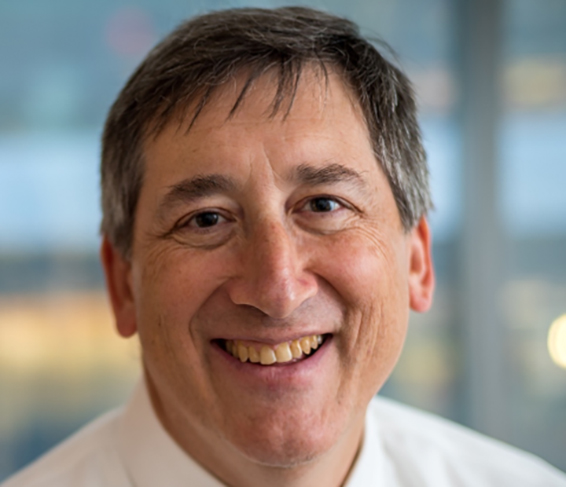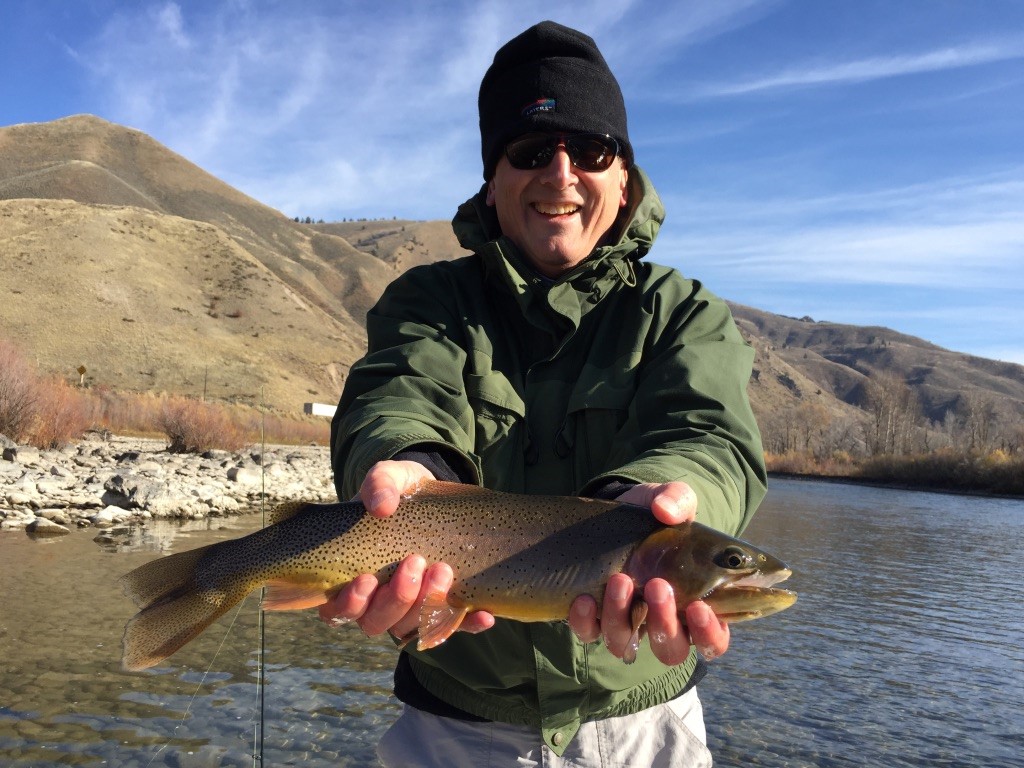
Q&A with James Tulsky, MD
August 7th, 2020
James Tulsky, MD is Chair of the Department of Psychosocial Oncology and Palliative Care at Dana-Farber Cancer Institute and Chief of the Division of Palliative Care at Brigham and Women's Hospital. He is also Co-Director of the Harvard Medical School Center for Palliative Care and serves as Course Co-Director of Palliative Care Education and Practice.
Tell us about your research. What drew you to this?
The majority of my research work has focused on communication. In particular, I've enjoyed analyzing audio recorded conversations between clinicians and patients talking about issues related to serious illness. Most of this work has focused on conversations between oncology clinicians and their patients with a goal of using this knowledge to improve practice.
Early in my career, I recognized that communication quality was not always as we hoped. I observed too many disturbing situations and wanted to understand how common this was across practice more generally. Specifically, I hoped to deconstruct these conversations into their component parts in a way that would allow us to improve the quality of that communication. I thought the best way to do so was by shining a light on what we did well and identifying opportunities for improvement.
In my first project as a research fellow I audio recorded 31 conversations between medical residents and their patients discussing code status. We found, unsurprisingly, that these conversations didn't adhere to what the literature said clinicians were supposed to be saying. Instead, these residents used vague language, forced choices in sometimes unprofessional ways, and rarely responded to patients’ emotions. That led me to our next project in which we audio recorded conversations between primary care attending physicians and their patients about advance care planning. We found many of the same problems. Conversations presented future choices as either/or options out of context with a patient’s goals and, again, they rarely addressed the emotional impact of the topic.
We then asked, if this is what we're seeing in common practice, are “experts” any different? We identified physicians nationally known for their expertise in communication and/or palliative care and audio recorded their conversations in a similar manner. Their conversations, it turned out, were much more in line with the idealized communication discussed in the literature and we knew that such high quality communication was possible. From there, we focused on developing interventions to train clinicians to communicate better and measured the impact of that training. We started with face-to-face training for medical residents, oncology fellows, and then attending physicians, and found that an innovative approach based on observation, practice, and feedback consistently improved communication quality. We created VitalTalk, a non-profit devoted to communication skills training, to disseminate that work and have touched nearly 15,000 clinicians. Eventually, we also converted the method into an online training form and have demonstrated similar efficacy. The bottom line of all this research is that clinicians’ communication skills can be improved through training, and that improvement can make a difference in how patients respond to these difficult conversations.
What would you like the public to know about your work?
I want people to know that communication skills are not something one is born with or magically received. They can be learned and improved upon and, when clinicians learn to communicate better, patients are more satisfied, have greater trust in their clinicians, and enjoy improved outcomes. When we deconstruct what happens during conversations, there are discrete elements that can be taught. This is something that is possible to disseminate across health systems and requires us to address it head on and to introduce structures that promote it. We should be optimistic about our ability to enhance oncology clinician communication and, thus, improve the experience of our patients.
What’s your favorite part of your job?
I love mentoring and the opportunity to help people develop early in their careers. That is absolutely the best part of this job. I put a lot of time and effort into developing our staff, fellows, and early career faculty throughout our department. We have an extraordinarily talented and engaged staff and it’s so rewarding to give people the opportunity to try new things and grow. At this point in my life, my focus is not on myself. My primary goal is to help other people achieve their goals. And, by doing so, I am certain we will elevate every aspect of POPC’s work and contribution to patient care.
What authors or book have influenced you most?
A book I particularly love is Give and Take: A Revolutionary Approach to Success written by Adam Grant, a social scientist at the Wharton School. Give and Take summarizes his research and creates a framework to understand how people behave in the world, particularly in their professional lives. He presents three global personality types: givers, takers, and matchers. Givers are people whose primary stance is generative and are quick to help out others, sometimes to their own detriment. Takers are, as you can imagine, narcissistic people who focus on themselves, often at the expense of others. Of note, takers can sometimes appear to be givers, but it is a ruse to ultimately get things from other people. Finally, matchers, who are the majority of people, view the world in a transactional manner. When they give, they expect something in return, and when they receive a gift, they feel obligated to respond in kind. Obviously, it’s much more complex than this, but that’s the general framework.
Grant’s thesis is that, perhaps counterintuitively, givers turn out to be the most successful people. Takers will oftentimes reach the top as well. However, because they take advantage of people they also burn bridges as others figure them out over time. They take and they take and they win, but to do so they must continue to build larger social networks as they lose people along the way. Eventually, most takers fail in important ways. Matchers fall somewhere in between. An interesting aspect to all of this is that while most givers end up doing very well professionally, some end up struggling because they are unable to balance giving with also taking care of their own needs. The last few chapters of the book focus on how to find the balance between giving, and still being true to oneself.
I have found this orientation to be very, very powerful as I look around our environment. To the extent that we can figure it out, I try hard to hire givers because it helps to create the culture within which we want to live. I think we all do better when we embrace givers and strive to be that type of person ourselves.

In your spare time, what do you do for fun?
Some people know this, but I'm an obsessive fly fisherman. It occupies too much of my brain time, whether I'm on the stream or just planning for it. I've been fly fishing at some level for 30 years, but over the past 5-7 years it’s become a passion. I've finally started tying my own flies which turns out to be a whole world in itself. It's not too dissimilar from any other craft: it has its own lexicon, materials, and art form to it. When you put those two pieces together and catch a fish on a fly you've tied yourself, that is a powerfully rewarding experience.
Fly fishing is the one thing I do that, when I'm doing it, I think about nothing else. Out on the stream, hours can go by while I’m just in the moment. It's a good excuse to be in a beautiful place where it's quiet and peaceful. Yet, having a goal of catching a fish adds a level of focus the eliminates all other distraction. During the pandemic, it's been one of my escapes. I can drive an hour or a little more to western Massachusetts, find a stream, and be the only person there. It's safe, very socially distant, and a place to get my mind off of whatever else I've been thinking about.
By the way, I release all the fish that I catch and use small barbless hooks which don't really harm the fish. By putting them back they survive and also give others the chance to enjoy catching a fish. If anybody is interested in fly fishing or wants to learn more about it, I will be more than happy to share my passion.
